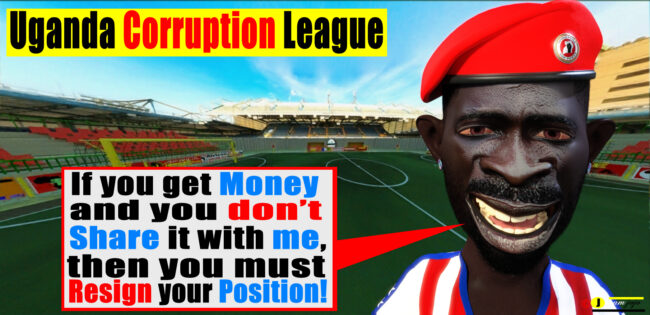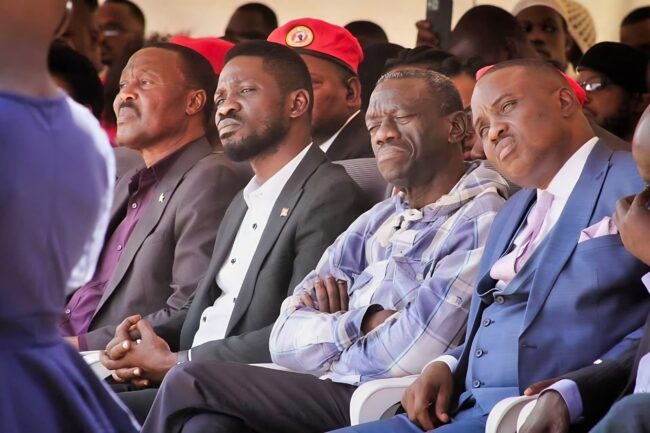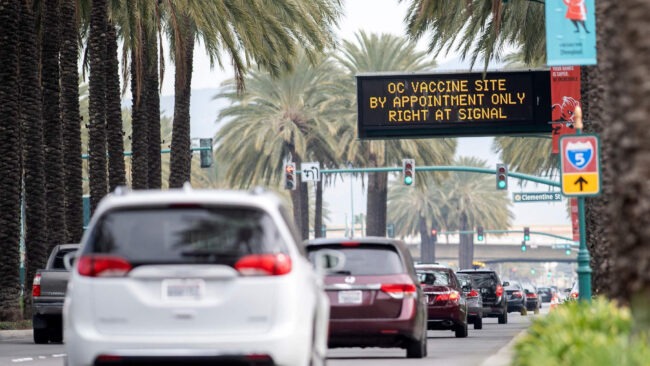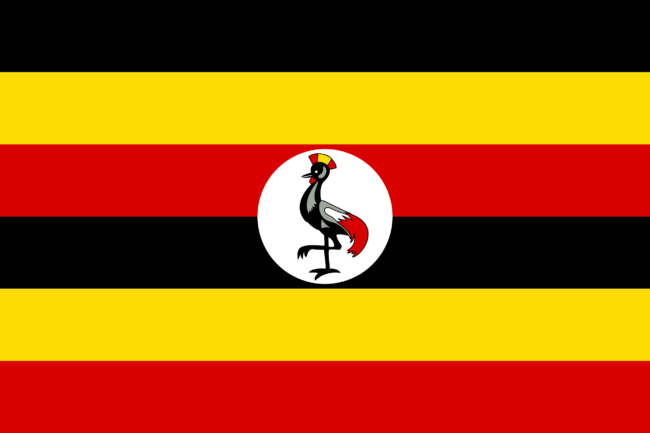Media › Forums › Uganda Police State › The Uganda dictator, Yoweri Museveni › Reply To: The Uganda dictator, Yoweri Museveni
Jean-Pierre Bemba was fortunate enough to have an extremely privileged childhood in one of the world’s poorest countries but this has not saved him from ending up on trial for war crimes at the International Criminal Court.
Mr Bemba spent his youth between the Belgian and Congolese capitals – Brussels and Kinshasa – and the small, remote town of Gbadolite in northern Democratic Republic of Congo, known as Versailles in the Jungle.
Gbadolite was the home and last refuge of the late Congolese leader Mobutu Sese Seko.
Mr Bemba’s father, the successful businessman Bemba Saolona, was very close to the former dictator.
But for him business was truly the first and only allegiance.
When Laurent Kabila’s troops overthrew Mobutu and marched into Kinshasa in May 1997, Saolona was briefly appointed a finance minister in the new regime.
Role models?
Father and son, however, have not always seen eye to eye.
Mr Bemba, who at a very young age lost his mother and has had difficult relationships with his father and stepmothers, explicitly criticised his father’s acquaintance with Laurent Kabila in his book The Choice of Freedom.
A great admirer of controversial French businessman Bernard Tapie and Italian Prime Minister Silvio Berlusconi, the young Bemba sought other father figures.
Perhaps his greatest influence was Mobutu himself, who employed him at the age of 30 as his personal assistant in the early 1990s.
Jean-Pierre Bemba
Educated in Brussels, made millions in air freight and telecoms
1998: Formed MLC rebel group with Ugandan backing
2003: Becomes vice-president under peace deal
2006: Loses run-off election to President Kabila
2007: Flees after clashes in Kinshasa
2008: Arrested in Brussels on an ICC arrest warrant
Another person central to his roundabout journey to becoming DR Congo’s vice-president was Ugandan President Yoweri Museveni.
As the Congolese government battled Rwanda-backed rebel groups in the east, Mr Museveni helped Mr Bemba open up a new front in 1998.
Uganda supplied troops, equipment and training when Mr Bemba launched his rebel group, the Movement for the Liberation of Congo (MLC).
In only a few months, the MLC managed to capture northern DR Congo. Its stronghold was Equateur province, home to Gbadolite.
With Mr Kabila now fighting several rebel groups, he eventually agreed to share power in a 2003 peace deal.
As a rebel leader, Mr Bemba became one of four vice-presidents.
By that time, his troops had also crossed the border from Equateur, to the Central African Republic.
Then CAR President Ange-Felix Patasse asked him to help put down a coup attempt in 2002.
It was the ensuing reign of terror, allegedly involving looting, civilian killings and mass rape of hundreds of women by MLC fighters, which led the ICC to file charges of war crimes and crimes against humanity against him as the group’s leader.
His lawyers say the fighters were no longer under his command after they crossed the border.
‘Oversized ego’
A characteristic that Mr Bemba shares with his father is the knack of making money.
He holds an MBA from a prestigious business school in Brussels and kept his economic activities running throughout the war, looking after family-owned coffee plantations and wood factories.
Former allies claim most of Mr Bemba’s fortune comes from gifts from African leaders such as Libya’s Muammar Gaddafi.
Jean-Pierre Bemba’s supporters have battled security forces in Kinshasa several times
Whatever the source, by the end of the war, the rebel-turned-politician had accrued enough wealth to buy a helicopter and several planes, which he sometimes likes to pilot himself. He also invested in DR Congo’s aviation business.
After he laid down his arms in 2003, Mr Bemba was sworn in back home as a vice-president in charge of finance in the interim administration.
He became increasingly influential, gaining the support of a number of political figures in DR Congo, and stood for the country’s presidency in 2006 – against Laurent Kabila’s son, Joseph.
But he was ultimately deserted by many allies who blamed his “oversized ego” for withdrawing their support.
He managed to take the incumbent to a second round, polling especially well in western DR Congo where many see the Swahili-speaking Kabilas as foreigners.
He claimed the run-off was rigged and was accused of refusing to disarm his militia and of unleashing violence in Kinshasa.
Mr Bemba has always denied the charges.
He was then accused of treason after his bodyguards and the army clashed in Kinshasa in March 2007.
He fled to his childhood retreat of Belgium but this time it was no haven.
He was arrested in May 2008 and then transferred to The Hague.





